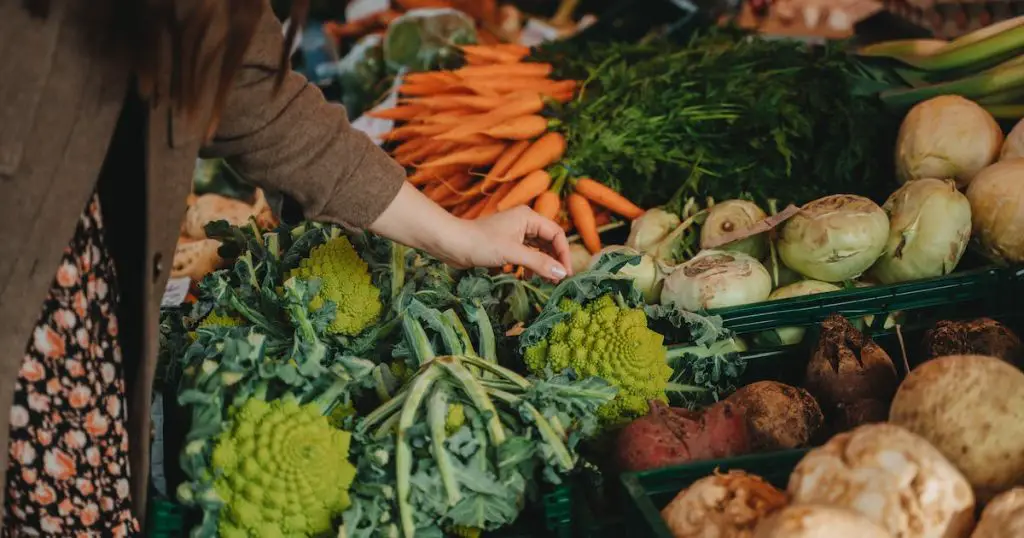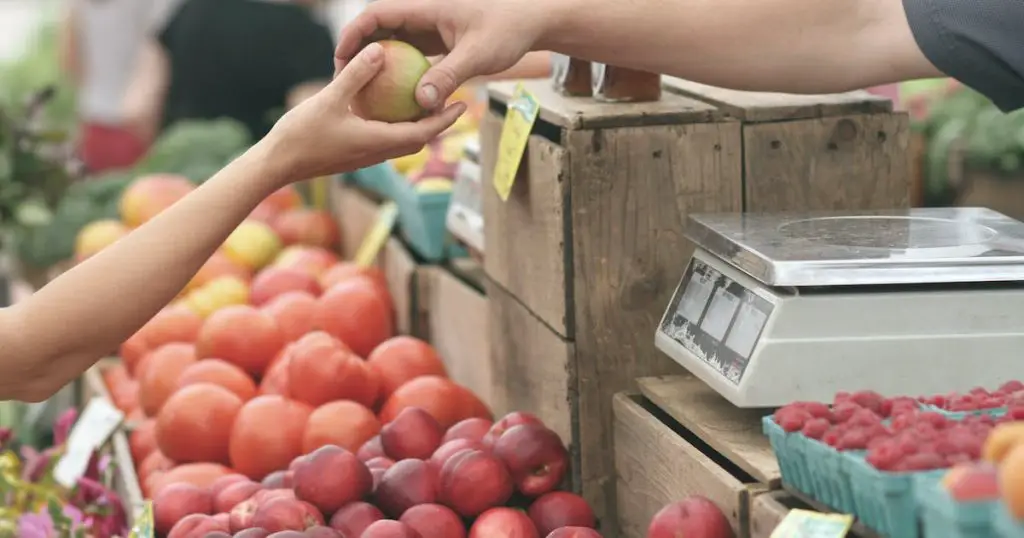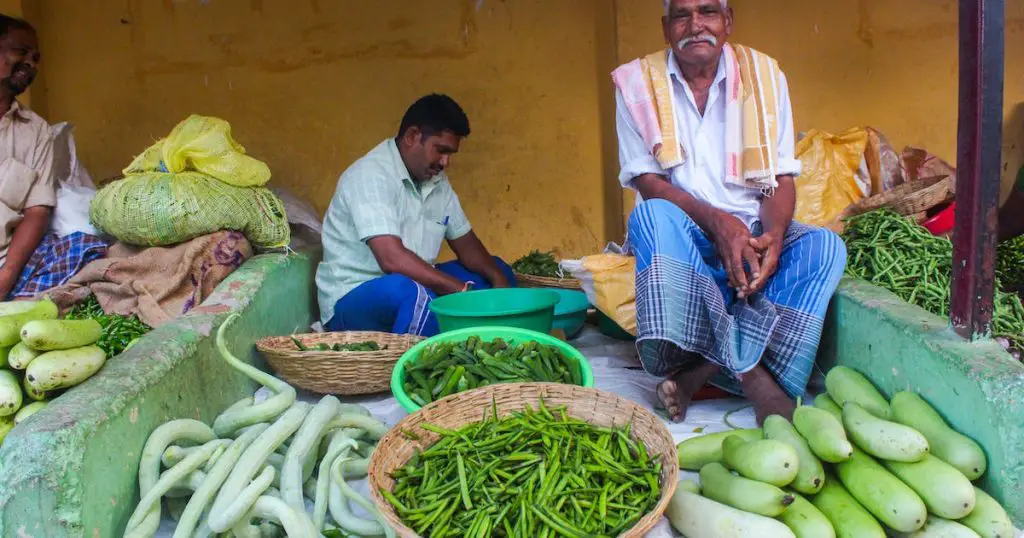Nestled in the heart of Arizona, Prescott is a city renowned for its vibrant farmer’s markets and an abundant selection of local produce. As a cornerstone of the community, Prescott’s farmer’s markets offer a window into the world of fresh, sustainable, and locally sourced food.
This article delves into the multifaceted aspects of these markets, from the charming locations and diverse produce available to the dedicated farmers and the positive impact on the local economy and environment.
Discover what we have in store! Visit our product page now for exclusive deals and must-have items. Don't miss out!

In exploring Prescott’s farmers markets and local produce, we uncover a story of community, health, and sustainability.
The Charm of Prescott’s Farmers Markets
Prescott’s farmer’s markets are more than just commercial spaces; they are bustling hubs of community interaction. Here, locals and visitors alike gather not only to buy fresh produce but also to connect with neighbors, enjoy live music, and participate in community events.
These markets have become a vital part of Prescott’s social fabric, fostering a sense of belonging and community spirit.
Historical Significance
The history of farmers markets in Prescott is as rich as the soil that nourishes its produce. Rooted in the city’s agricultural past, these markets have evolved over the years.
They reflect Prescott’s commitment to preserving its heritage while adapting to the changing needs of its people. Historical documentation from the Prescott Historical Society reveals how these markets have been a staple in the city’s culture for decades.
Understanding the Concept of Local Produce
Local produce refers to fruits, vegetables, and other food products that are grown and harvested within a specific region, often defined by a certain radius from the point of sale.
The importance of local produce lies in its freshness, reduced environmental footprint, and the support it provides to local farmers. The Arizona Department of Agriculture highlights the benefits of consuming local produce, including its nutritional superiority and economic advantages.
Benefits to Consumers and Farmers
The benefits of local produce extend to both consumers and farmers. For consumers, it means access to fresher, more nutritious, and often organic produce.
For farmers, it provides a direct market for their goods, ensuring fair prices and greater control over the sale of their produce. The National Farmers Market Association provides insights into how local markets benefit both parties.
The Landscape of Prescott’s Farmers Markets
Prescott boasts several farmers’ markets, each with its own unique character. The Downtown Prescott Farmers Market, open year-round, is a favorite among locals for its wide array of produce and artisan products.
The Prescott Valley Farmers Market, held on weekends, offers a different yet equally enriching experience with its focus on family-friendly activities. The timings and specific locations for each market can be found on the City of Prescott’s official website.

Each market in Prescott has distinct features that set it apart. For instance, some markets might offer cooking demonstrations using local produce, while others may specialize in organic or heirloom varieties. These unique elements not only add to the shopping experience but also cater to a diverse range of consumer preferences.
Seasonal Availability and Varieties
Prescott’s climate plays a significant role in determining the availability of produce throughout the year. The seasonal cycles dictate what is grown and when offering a constantly changing selection to consumers. The University of Arizona’s Agriculture Department provides a detailed guide on seasonal produce specific to the region.
The variety of produce available shifts with the seasons. Spring brings leafy greens and herbs, summer is abundant with tomatoes and berries, autumn offers a bounty of root vegetables, and winter focuses on citrus and hardy greens. This cycle not only ensures a diverse diet for consumers but also encourages sustainable farming practices.
Farmers and Producers
The heart of Prescott’s farmer’s markets lies in its passionate and dedicated farmers. Interviews with local farmers reveal their stories, motivations, and the challenges they face. From family-run farms that have been operating for generations to new, small-scale organic producers, these profiles provide a human face to the produce we consume.
Success Stories Many farmers in Prescott have inspiring success stories. These narratives often include overcoming challenges such as climate change, evolving market demands, and economic pressures. Success stories serve as a testament to the resilience and hard work of these local heroes.
The Journey of Produce: From Farm to Market
The path from farm to market is filled with hard work and dedication. Understanding this journey gives consumers a deeper appreciation of the food they purchase. It involves careful planning, sustainable farming practices, and meticulous harvesting techniques to ensure the best quality produce reaches the market.
Prescott’s farmers are known for their sustainable and often organic farming practices. These methods not only yield high-quality produce but also contribute to the preservation of the environment. Practices such as crop rotation, natural pest control, and water conservation are commonly employed.
Consumer Experience
Shopping at Prescott’s farmers markets is a delightful experience, filled with the sights, sounds, and smells of fresh produce and artisan products. For first-time visitors, navigating these markets can be an adventure in itself.
From finding the best deals to discovering rare and unique produce, the markets offer something for everyone. Regular buyers often have their favorite stalls and vendors, forming relationships that go beyond mere transactions.
A Guide for First-Timers
For those new to farmers markets, a little guidance can go a long way. It’s advisable to arrive early for the best selection, bring reusable bags, and carry cash for vendors who may not accept cards. Exploring all stalls before making purchases allows for a better understanding of the variety and pricing available.
Regular buyers can benefit from knowing the seasonal cycles, building rapport with farmers, and trying new products regularly. Engaging with farmers can provide insights into the best ways to cook and store produce, making the whole experience more enriching.
Community Engagement and Activities
Prescott’s farmer’s markets are more than just shopping destinations; they’re community centers where people learn, interact, and celebrate local culture. Educational programs on nutrition, cooking demonstrations using local produce, and activities for children are common features. These initiatives foster a sense of community and provide valuable information to visitors.
Educational initiatives at these markets often include workshops on sustainable living, cooking classes featuring local ingredients, and talks on the importance of supporting local agriculture. These programs are instrumental in building a knowledgeable and health-conscious community.
Sustainability and Economic Impact
Sustainability is at the core of Prescott’s local farming. Farmers employ practices that not only yield high-quality produce but also ensure the health of the land for future generations. Techniques like water conservation, organic pest control, and soil health management are commonly practiced.
The Environmental Protection Agency offers resources on sustainable farming practices that are likely implemented in Prescott.
The environmental benefits of these sustainable practices are significant. Reduced carbon emissions from shorter transportation routes, lesser use of harmful chemicals, and improved soil health contribute to a healthier environment. This approach aligns with the city’s broader environmental goals, as outlined in Prescott’s Environmental Initiatives.
Economic Benefits of Farmers Markets
The economic impact of Prescott’s farmer’s markets extends beyond the immediate sale of produce. These markets stimulate local economies by keeping money within the community, supporting local employment, and encouraging ancillary businesses like local craft and food vendors.
Studies from the Economic Research Service of the USDA illustrate the positive economic impact of farmers’ markets on local communities.
By shopping at farmers’ markets, consumers directly support local farmers and businesses. This support helps sustain the agricultural community in Prescott, ensuring a vibrant local economy and securing jobs. Moreover, it fosters an environment where local businesses can thrive.
Health and Nutrition
Local produce is often fresher and more nutritious than its commercially transported counterparts. The shorter time between harvest and consumption ensures maximum nutrient retention.
Furthermore, local produce is less likely to be treated with preservatives, making it a healthier option. The Mayo Clinic provides information on the health benefits of consuming fresh, locally-grown produce.
Tips for Healthy Eating
Incorporating local produce into daily diets can lead to healthier eating habits. Seasonal fruits and vegetables provide a diverse range of nutrients, and fresh produce often tastes better, encouraging its consumption.

Simple tips for incorporating more local produce into meals include trying new recipes, eating a variety of colors, and focusing on whole foods.
Educational Outreach on Healthy Eating
Educational outreach programs at Prescott’s farmers markets play a crucial role in promoting healthy eating habits. These programs, often in collaboration with local health professionals and nutritionists, provide valuable information on the benefits of a diet rich in local produce.
Cooking demonstrations, nutrition workshops, and health screenings are common features of these outreach efforts.
Collaboration with Health Professionals
The collaboration between farmers’ markets and health professionals creates a bridge between agriculture and health.
Dieticians and nutritionists often participate in these markets, offering advice and workshops on healthy eating. This collaboration ensures that the health benefits of local produce are communicated effectively to the community.
Technology and Innovation
Innovation and technology play a significant role in modern farming practices, even at the local level. Prescott’s farmers are increasingly adopting technologies for better crop management, efficient water use, and improved produce quality.
The use of drones for monitoring crop health, advanced irrigation systems, and digital platforms for market analytics are examples of how technology is shaping modern farming. Resources from the National Institute of Food and Agriculture provide insights into these technological advancements.
Use of Technology at Local Farms
Local farms in Prescott are integrating technology in various aspects of farming. This includes precision agriculture for optimal resource use, solar-powered equipment for sustainability, and mobile apps for tracking produce and market trends.
These technologies not only increase efficiency but also help in producing high-quality and sustainable produce.
Innovations in Produce Preservation and Packaging
Innovative techniques in preservation and packaging play a crucial role in extending the shelf life of produce and reducing waste.
Many local farmers in Prescott are adopting biodegradable packaging and employing methods like controlled atmosphere storage to keep produce fresh. These innovations ensure that the produce retains its quality from the farm to the consumer’s table.
Online Presence and E-Commerce
The digital era has transformed the way farmer’s markets operate. Many Prescott markets and vendors have established an online presence, reaching a wider audience and providing convenience to customers.
Websites and social media platforms are used for marketing, while e-commerce options allow for pre-orders and home deliveries. This digital shift, detailed on platforms like the Digital Agriculture Resource Guide, not only caters to modern consumer needs but also opens up new avenues for growth and expansion.
Challenges and Future Prospects
Despite their success, Prescott’s Farmers Markets faces several challenges. Environmental concerns like water scarcity and climate change pose significant threats to farming.
Economic and policy challenges, such as fluctuating market demands and regulatory hurdles, also impact these markets. Addressing these challenges requires collaborative efforts from the community, policymakers, and the farmers themselves.
Environmental Concerns
Environmental sustainability remains a primary concern for farmers in Prescott. Dealing with issues like drought, soil erosion, and pest management requires continuous adaptation and innovation.
Resources from environmental organizations like the Natural Resources Conservation Service provide valuable information on tackling these challenges.
Economic and Policy Challenges
Economic pressures, such as competition with larger grocery chains and fluctuating market prices, affect the viability of farmers’ markets. Policy challenges, including land use regulations and agricultural subsidies, also play a role in shaping the landscape of local farming. Understanding and navigating these challenges is crucial for the sustainability of Prescott’s farmers markets.
Looking to the future, emerging trends in consumer behavior, technological advancements, and sustainable farming practices are likely to shape the development of Prescott’s farmers markets. A growing interest in organic and locally sourced food, along with advancements in sustainable farming technologies, holds promise for the future of these markets.
Emerging Consumer Trends
Consumer preferences are increasingly leaning towards sustainable, locally sourced food options. This shift is driven by a growing awareness of health, environmental, and economic benefits.

Farmers markets in Prescott are well-positioned to meet these evolving consumer needs, adapting their offerings to align with these trends.
FAQs
In this section, we will be delving into some of the most common inquiries and curiosities that surround our topic.
What days are the farmer’s markets open?
Prescott’s farmers markets typically operate on specific days of the week, with some open year-round. The exact days and timings can be found on the respective market’s website or social media pages.
How can consumers ensure they are buying truly local produce?
To ensure the produce is local, consumers can ask vendors about the origin of their products and look for signs or labels that indicate local sourcing. Engaging with farmers and vendors also provides insights into the produce’s journey from farm to market.
What are some tips for preserving the freshness of produce?
To maintain freshness, store produce in appropriate conditions – refrigerate leafy greens, keep root vegetables in a cool, dark place, and use airtight containers for cut fruits and vegetables. Quick usage after purchase also helps in retaining freshness.
Can people volunteer at these markets?
Yes, many farmers’ markets in Prescott welcome volunteers. Interested individuals can contact the market organizers or visit their websites for more information on volunteer opportunities.
How can local farmers join the Prescott farmers markets?
Local farmers interested in joining Prescott’s farmers markets can apply through the market’s application process. This typically involves submitting an application, meeting product and quality standards, and complying with relevant regulations.
Conclusion
The importance of supporting local cannot be overstated. Prescott’s farmers markets and local produce represent a nexus of community, health, and sustainability. Through this exploration, it’s clear that these markets are more than just places to buy food; they are vital to the social, economic, and environmental well-being of the city.
By supporting local farmers and producers, we not only enjoy the benefits of fresh, nutritious food but also contribute to the health and prosperity of our community. Let’s continue to cherish and support these valuable community assets.



Leave a Comment
You must be logged in to post a comment.